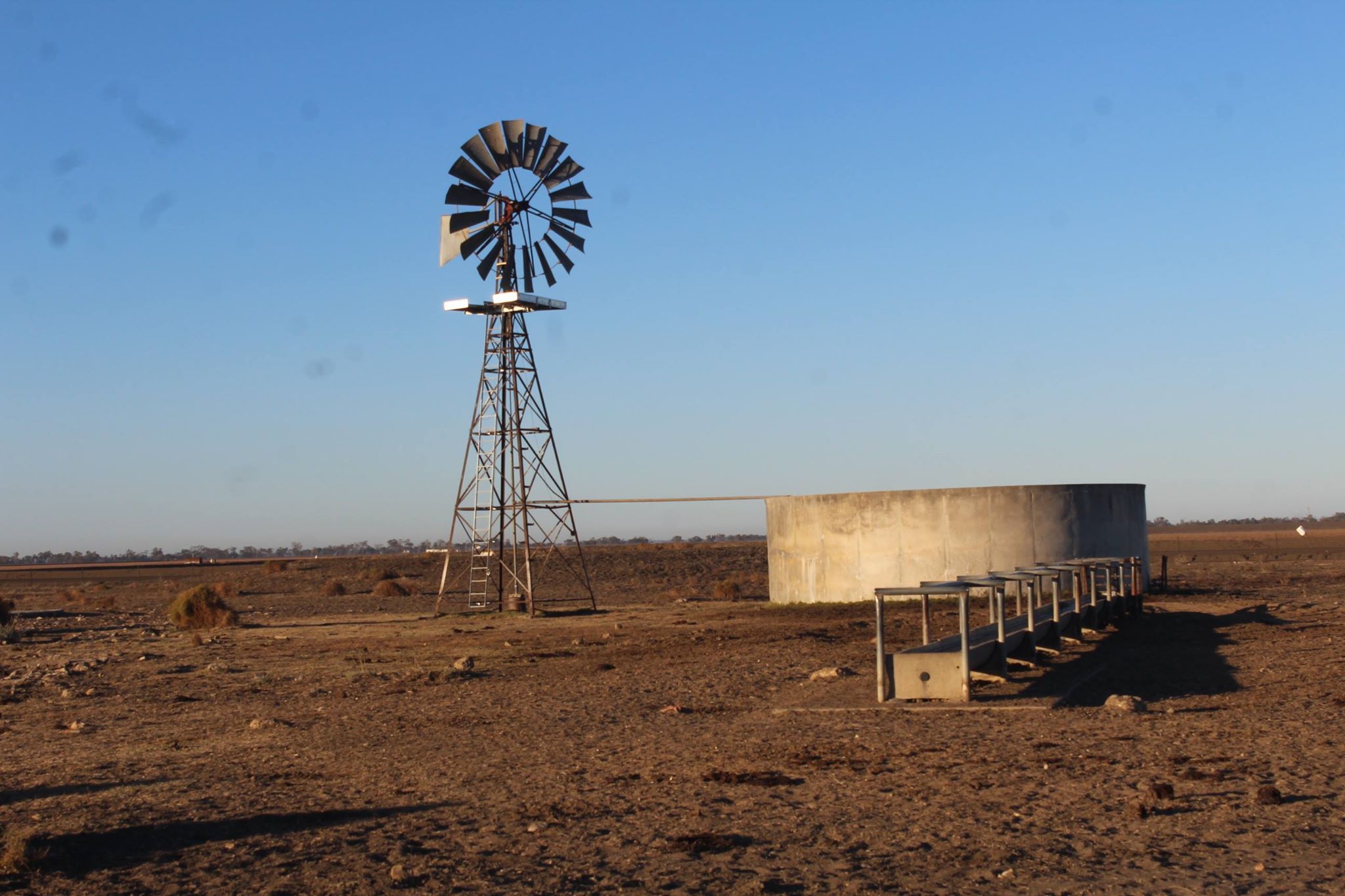
A mental health crisis
Back to back disasters have slammed our farmers and bush communities, setting off a mental health crisis.
The floodgates have opened. As unrelenting disasters have bombarded people in the bush, their daily grind has continued. Add to that the isolation of remote living, personal setbacks, and the struggles of living and working on the land. And mental health issues have compounded. Making things worse is the fact that access to mental health services is minimal.
Now a mental health crisis is drowning many of our bush friends. We are hearing first hand that the constant challenges and lack of support is pushing our friends to the edge.
Responding to a mental health crisis
The most heartbreaking thing for our Bush Chaplains is when they only hear about a suicide after it has already happened and it’s too late to help. Sadly, this was the case recently when our Bush Chaplain in the Parkin Sturt Remote Area of SA, Rev. Sunil Kadaparambil was called to see a devastated family who had lost their son this way.
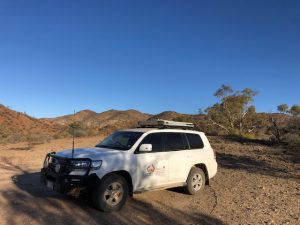 This mental health crisis is taking people’s lives. It’s an emergency. So I’m hoping you can help, as you have kindly done before. We know that our Bush Chaplains are a critical part of this. They are literally saving lives.
This mental health crisis is taking people’s lives. It’s an emergency. So I’m hoping you can help, as you have kindly done before. We know that our Bush Chaplains are a critical part of this. They are literally saving lives.
Almost every Frontier Services Bush Chaplain has their own story of how they have saved someone’s life. We know how valuable they are and why they are needed. We believe that every life is valuable. We want to make sure that our Bush Chaplains continue to show up when and where they are needed. With your support we can. When someone is struggling with their mental health in these rural and remote places, Bush Chaplains are often the First Responders. But we need more of them, so more people who are hurting have a trusted contact on the ground who cares and listens to their concerns – no matter where they live.
I want to cry when I think how it must feel for people when the hard times never let up. And their predicaments are only growing.
Rev. Sunil says that in his area, anxiety and uncertainty have exploded. COVID restrictions have meant farmers have fewer hands helping them work the land. Some haven’t been able to source spare parts for machinery. This has added to the deep mental stress caused by the unprecedented weather conditions of the last few years.
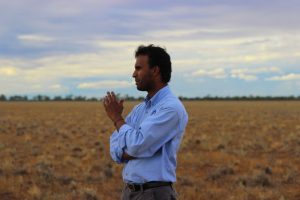
He has seen heartbreaking scenes of farmers forced to reduce their cattle herds because of a drought that has lasted nearly 10 years now. At the same time, other people he knows have suffered from catastrophic floods that cut off their supplies of food and other essential items.
“We talk about the peace and serenity of the Outback,” he tells me, “but for those living here and having to deal with the severe challenges and hardships on the land, it is distressing. The Outback is the real heart of Australia, but it also holds many painful stories of those that live here.”
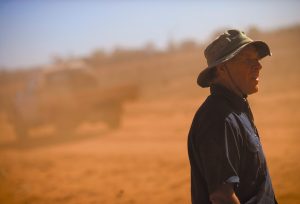
Managing mental health against all odds
As I think about Rev. Sunil’s words, one story of heartache stands out to me, that of Gary.
Gary is a second-generation farmer near Parkes in the NSW Central West. On 8,000 acres, Gary grows wheat, barley, oats and canola and runs sheep. And the circumstances he has been facing are beyond overwhelming. His area was in the grip of a brutal drought. When it finally started to break, the mouse plague took off. Like a nightmare, mice overran everything in the region destroying crops and machinery, contaminating food and other supplies. Then came COVID-19.
On top of all of that, last year, a personal disaster crashed in on Gary and his wife Lucinda. Their first baby, a longed-for addition to the family, was suddenly born early in September at 24 weeks. Tiny Henry was just 560 grams – the weight of a tub of margarine.
“Doctors didn’t expect him to live beyond the first week,” Gary says. “It was so hard.”
With their local healthcare so limited, Henry had to be rushed to Intensive Care at John Hunter Hospital in Newcastle, hundreds of kilometres away. As you’d imagine, his hospital stay far from home was fraught with immense worry and fear – and it also coincided with harvest time. This made the stress even more extreme for Gary and Lucinda.
Slowly Gary was able to get out from under a mountain of responsibilities and strain.
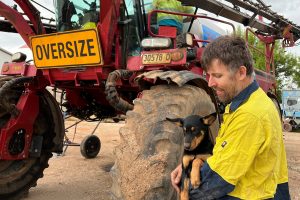 “You can’t keep life on hold,” Gary says. “All the lambs need to be marked. Sheep need to be shorn. All the crops need harvesting. I felt so guilty asking my father to come back to the farm and help us and my younger brother was a trooper.”
“You can’t keep life on hold,” Gary says. “All the lambs need to be marked. Sheep need to be shorn. All the crops need harvesting. I felt so guilty asking my father to come back to the farm and help us and my younger brother was a trooper.”
“But all the help we’ve had from Frontier Services eased this guilt a bit. We are slowly getting back on top of things. Going forward we are organised for our planting season. We are eternally grateful to Frontier Services.”
Practical assistance is part of easing the intense stress on people doing it tough in the bush, but of course so is direct emotional support. This is what our Bush Chaplains can provide.
In fact it’s their speciality. Our Bush Chaplains give support not found anywhere else, there is no one like them in small rural and remote communities who can offer such broad yet focused care. Sometimes they are the first and last line of support in this mental health crisis sweeping through the bush.
We urgently need more Bush Chaplains to join our team so we can cover more regions with this unique, life saving service – this is where your gift now can help.
Overcoming stigma to take the pain away
I recently spoke to our Bush Chaplain, Pastor Gary Ferguson, about the needs among the people he supports in the Ceduna Remote Area, SA. He tells me that with the nearest psychiatrist an 800km trip away, nine times out of 10 he is the First Responder when it comes to mental health issues in his patch.
He’s seeing family worries, COVID-19, illness and deaths taking people to dark places – in spite of their remarkable resilience. And along with these problems has been the usual isolation plus disasters like recent floods in the area that affected some farmers he knows.
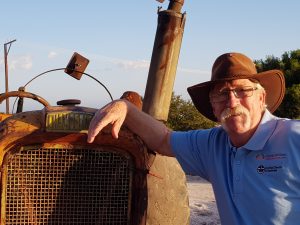 He says that in the bush, especially among the men, a lot of stigma is attached to mental health problems. Often a farmer won’t visit Gary’s home for help, in case someone sees them and wants to talk about why they are there. Instead, they’ll phone and Gary will visit them on their farm at the agreed time. Talking about their pain doesn’t come easily. Sometimes what another person can express in a few sentences, a farmer needs a few hours to say.
He says that in the bush, especially among the men, a lot of stigma is attached to mental health problems. Often a farmer won’t visit Gary’s home for help, in case someone sees them and wants to talk about why they are there. Instead, they’ll phone and Gary will visit them on their farm at the agreed time. Talking about their pain doesn’t come easily. Sometimes what another person can express in a few sentences, a farmer needs a few hours to say.
Adds Gary, “It’s not uncommon that I have visited and talked to people and listened to people and only found out on the next visit that the person was contemplating taking his life – before I knocked on his door that first time.”
But Gary sees the difference he makes – with supporters like you helping him keep up his work.
One person had help from Gary with his mental health and he then went on to comfort and counsel his mates when they developed issues of their own. To Gary, that is when care comes full circle.
“My heart goes out to those who are lonely, grieving or have lost purpose in their life, but it is here where Bush Chaplains can stand with someone to allow them to see a bridge they can build to a new life, which has a brighter future,” he says.
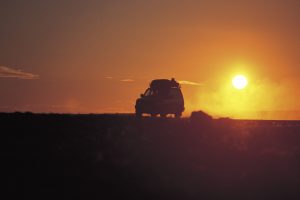 We have plans to recruit another six Bush Chaplains after these last few years that have been incredibly tough for our farmers and our friends in the bush. But we need you to be alongside us to reach our vision. You can make a difference.
We have plans to recruit another six Bush Chaplains after these last few years that have been incredibly tough for our farmers and our friends in the bush. But we need you to be alongside us to reach our vision. You can make a difference.
You can help us give the life-saving support of a Bush Chaplain to more rural and remote areas across Australia where people are hurting so much. Please consider a tax-deductible donation of by June 30. If you’d like to do more, an extra generous would make such a difference.
We would like your gift before June 30 so that we are able to plan for our budget and placements for next year. Your gift means we can put support where it’s needed the most. We have an additional six Bush Chaplains requested for remote areas and with your generosity, we can reach out to more people who are struggling in bush communities.
Thank you – and please help if you can.
